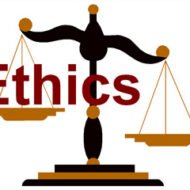Posted by Managementguru in Business Management, Economics, International Business, Principles of Management, Technology
on Mar 26th, 2014 | 0 comments

Transfer of Technology- Commercialisation Vs.Benefit The total influx of technology in underdeveloped countries is from the advanced capitalist countries for obvious reasons, which will be the highlight of this discussion. Multinational corporations play a vital part in technology transfer, the motive being profit maximization for the parent company through their subsidiaries. These corporations act as the principal instrument of technology transfer, either through their subsidiaries or through contractual agreements made with developing countries. The idea is to bring mechanized processes and equipments that are not locally available. Dominance of Technology Supplier: The technology supplier usually takes the upper hand owing to his monopolistic strength that arises from the patent protection for differentiated products and processes. Very often, the terms and conditions of transfer are arbitrarily settled under highly imperfect market conditions by the technology supplying multinationals. Advanced nations have the advantages of reduced population density, even distribution of national wealth, high standard of living, more infusion of capital into research and development, availability of skilled personnel inclined towards research etc. Dependency of Developing Nations: Developing nations on the other hand are subject to the pressures of high population density, uneven distribution of economic wealth (poor people become more poor and the rich even richer), moderate or low living standards etc. Capital drain occurs due to heavy borrowings from the World Bank which leads to increase in the social overheads. In such a situation, it is next to impossible for a developing nation to pump capital into activities concerning research. Bargaining Power of Developing Nations: The bargaining power of developing nations is weak, as they have no access to information about alternate technologies and their sources nor the necessary infrastructure to evaluate the appropriateness of equipments, intermediates and processes. Moreover, the large part of the influx of technology in developing countries is in response to the policy of industrialization through import substitution. Transfer of technology from the developed to the underdeveloped countries is made in a number of ways. They are classified into two broad categories, viz., direct mechanism and indirect mechanism. The direct mechanism includes transfer of technology through banks, journals, industrial fairs, technical co-operation, movement of skilled people etc. Here there is a choice for the developing nation to select the appropriate technology that best suits their requirement. However, this is not the principal form of technology transfer that advanced nations would prefer. Price of Technology: The indirect mechanism implies technology transfer in a “package” or a “bundle” containing technology-embodying equipments, industrial properties like patents and trademark, skill, equity capital, etc. In this system, a local enterprise negotiates with multinational corporations for transport of the required elements of technology, and the terms and conditions are settled through a process of commercial transaction. Since the trading partners are unequal, the terms of contract are invariably restrictive and the price extended for the technology unreasonably high. All the underdeveloped countries, which have opted for growth along the classical path of capitalist development, are in a position to invite multinational corporations, if for no other reason than at least for the diffusion of...

Posted by Managementguru in Business Ethics, Business Management, Human Resource, Principles of Management
on Mar 12th, 2014 | 0 comments

The Need for Business Ethics Every individual should be guided by certain code of conduct. Ethics deal with personal conduct and moral duty and concerns human relations with respect to right and wrong. In business, ethics is doubly important and the society expects the businessmen to act ethically. Business ethics adds to the image of the company and develops a sense of trust in the minds of people and a long lasting relationship that is to stay. If the businessmen act ethically there is no need for legal rules and regulations that govern the code of conduct. Most of today’s businessmen want to make a fast buck and does not have business ethics. Benefits of Business Ethics 1. Creates Credibility 2. Helps in ethical decision making 3. Enhances quality of living 4. Corresponds to basic human needs Business ethics is primarily concerned with the relationship of business goals and techniques to specifically human ends. It is a dynamic philosophy of socio-economic adjustments whose field is widening day by day. Pic Courtesy: Asuccessfulcareer Definition of Business Ethics: Typical definitions refer to the “rightness or wrongness of behavior, but not everyone agrees on what is morally right or wrong, good or bad, ethical or unethical.” “Application of general principles of ethic customary in a society to the areas where business operates.” In the words of T.M.Garrett, “business ethics is a study of moral rightness and wrongness of the acts involved in the production, distribution and exchange of economic goods and services.” Elements of Business Ethics: · It should be above business interests-no harm should be done to the society · It is more of a code of business behavior · It has responsibilities as roots and outcome as fruits · It is guided not by sentiments and emotions but by definite tenets · It has to be followed by one’s own will and cannot be enforced upon · It cultivates high sense of honesty, general welfare, justice and responsibility in the minds of businessmen · It emphasizes the importance of self discipline over external control by legislation. The businessmen should not make false promises which destroy the fair image of the business. Principles of Business Ethics: · Do not sell substandard or defective products or stick to under measurement · Do not resort to hoarding, black-marketing or profiteering · Do not destroy or distort competition · Ensure accuracy and sincerity in advertising, labeling and packaging · Do not tarnish the image of competitors by unfair practices · Make accurate business records available to all authorized persons · Pay proper taxes and satisfy other obligations · Do not form cartel agreements to control production, price etc. to the common determinant · Refrain from secret kick backs or pay-offs to customers, suppliers, administrators, politicians etc., · Ensure payment of fair wages to and fair treatment of employees · Fulfill honestly all responsibilities towards the organization. Owners, employees, consumers, suppliers, government and society at large. The most common unethical practices being followed would be: 1. Adulteration 2. Spurious products 3. Duplicates 4. Injurious products 5. Defective Advertisements 6. Low salaries 7. Poor working Conditions 8. Exploitation- Sexual harassment and bullying, use of child labor 9. Financial misconduct-Employees being made to sign for more than actually paid for 10. Tax evasion- Improper records or bogus records to show hiked up profit in the p&l 11. Pollution 12. Bribes and circulation of money to buy political support- The notoriously popular 2G...




